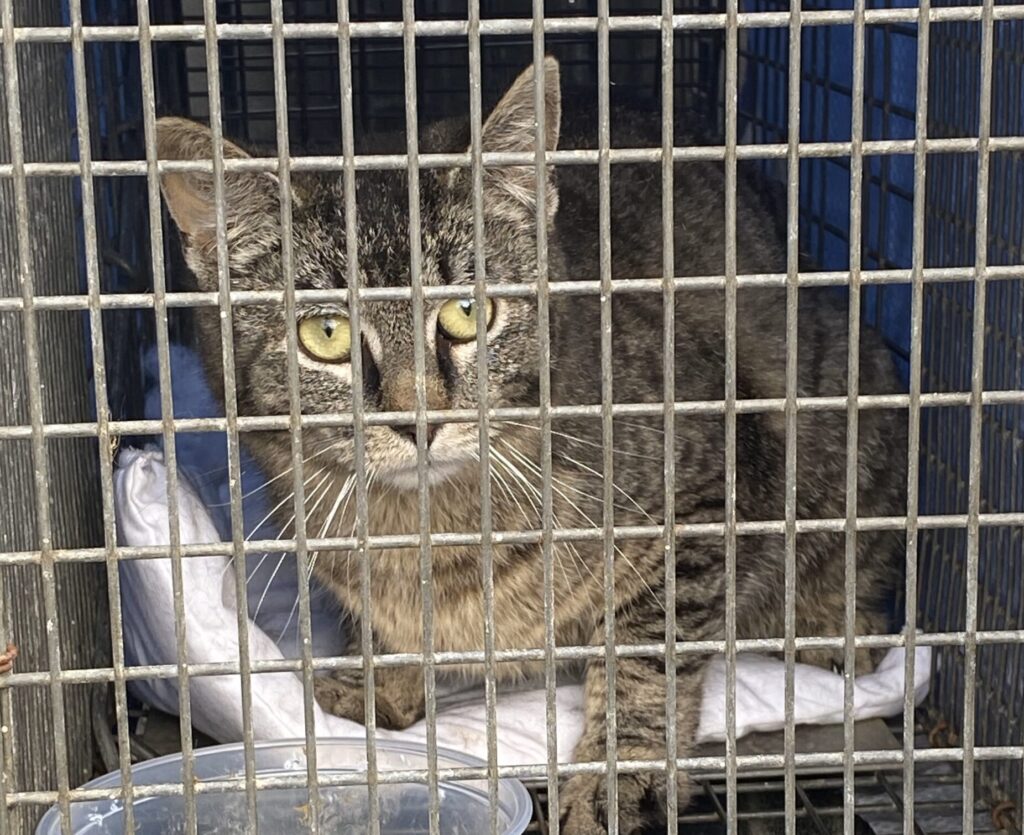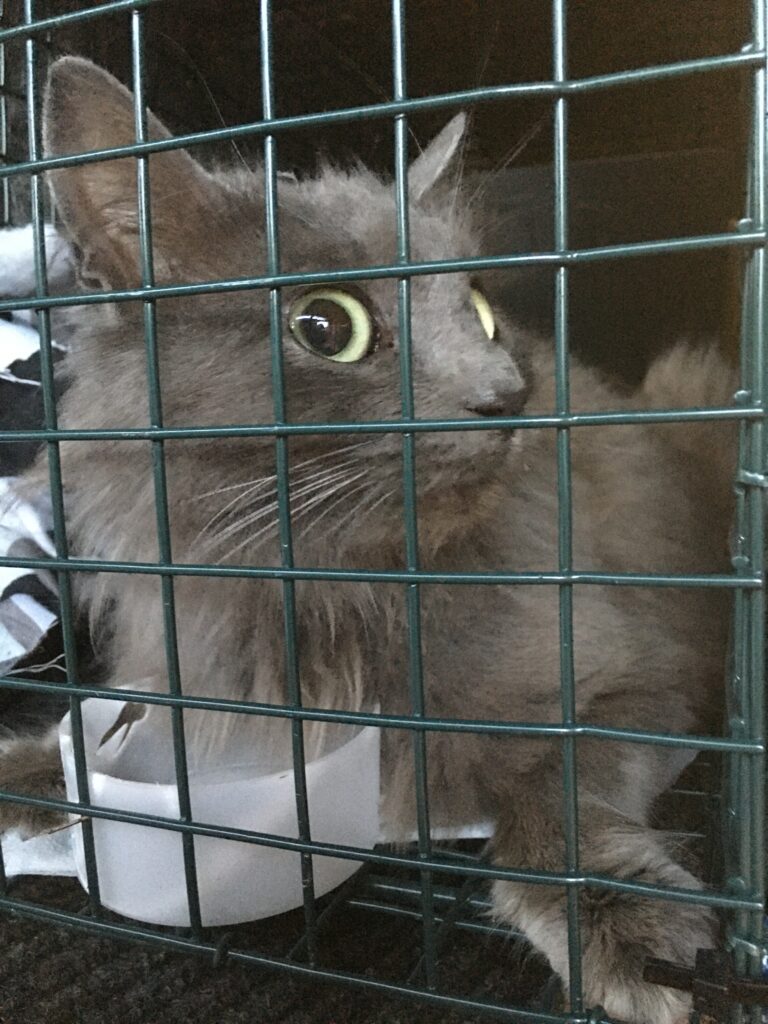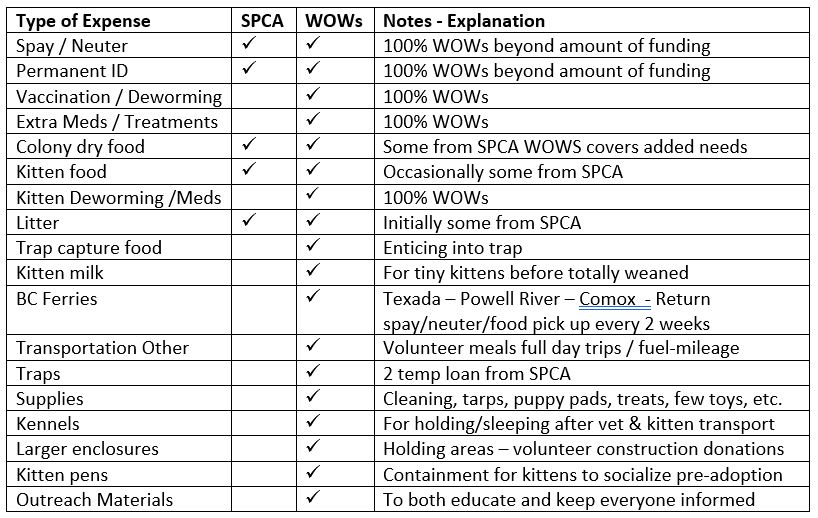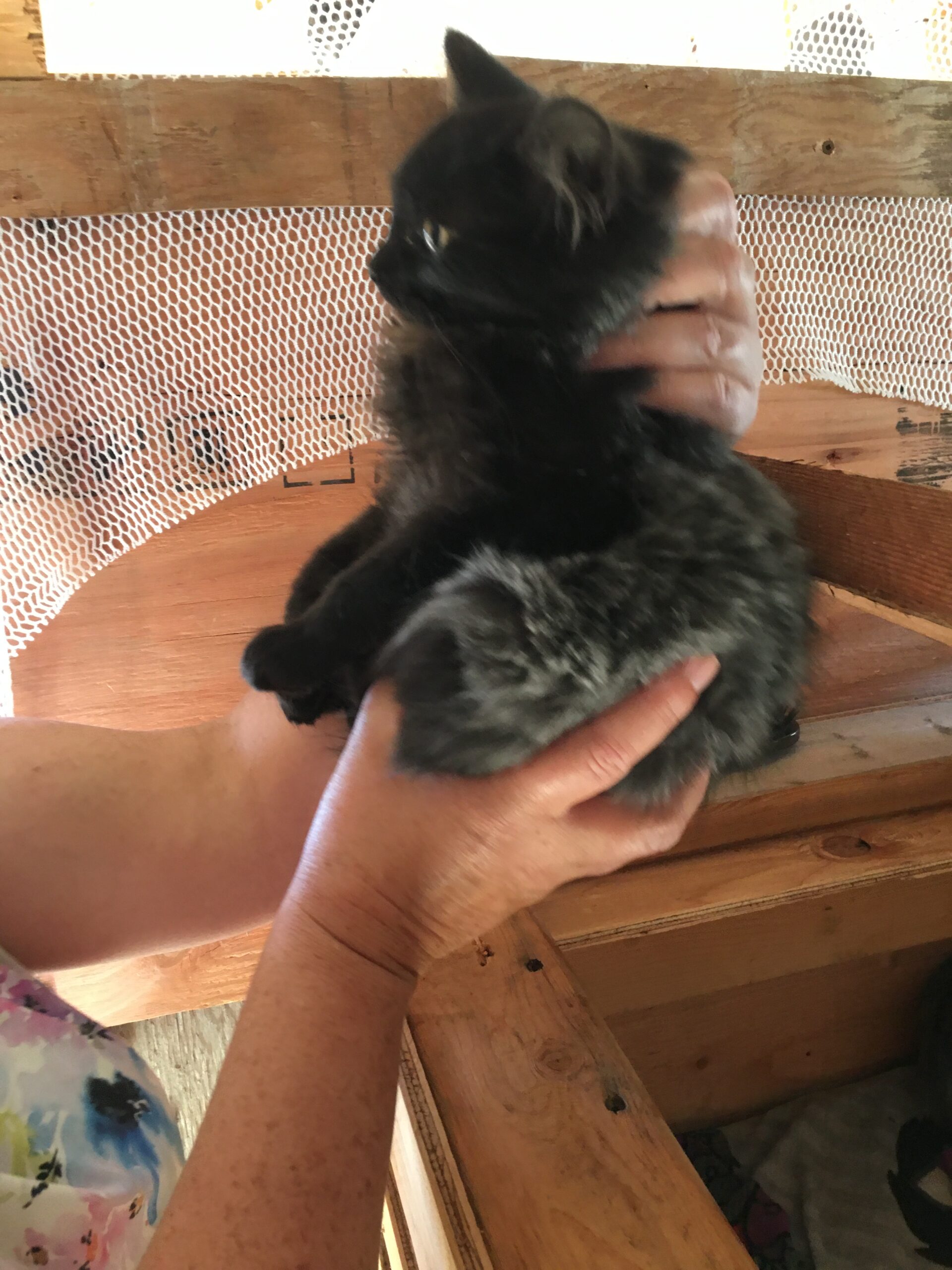
Wild Ocean Whale Society (WOWs)
Respect, Observe, Preserve
FERAL CAT FAQs

WHAT IS A FERAL CAT?
Also called: Community Cats, Stray Cats, Free Roaming, and Unowned Cats
A cat that has become semi-wild out of necessity and instinct to survive. They have no caring owner,
may have been discarded, abandoned or are growing up in a feral cat colony. They frequently have
minimal or no human contact. The term Feral is a bit of a misnomer since these cats generally shy away from people.
Cats are social animals. With safety in numbers, and need of shared friendship and warmth over winter, these cats group together to form colonies. There can be several generations of cats in a colony if their populations go unchecked through initiatives like ours to spay and neuter them.
Most often these cats are not neutered or spayed and their natural instinct to mate can cause exponential growth of populations. A pair of breeding cats can have 2 or more litters per year. Their kittens can get pregnant as early as 5 months of age, over seven years they can produce an exponential 42,000 offspring if they keep reproducing without intervention.
Initially, Sept-Oct. 2022, when WOWs was called in to assist with the Texada rescues, there were 12 kittens pulled from the colony. We continue to find and rescue kittens. In June 2023 we pulled an additional 14 kittens. Those rescued have been worked with by our foster guardians to ensure socialization prior to adoption. The majority, through WOWs, have already found their forever, caring homes who are committed to spay and neuter their new family members.
Kittens have the best success of being fully socialized. Occasionally older feral cats can find a forever
home adopting their new owners and becoming the warm, loving cats we know. Some older cats have never known kindness and may never become totally trusting of humans. Patience is needed to show these cats and kittens they are going to be safe, fed and cared for to become a part of any family. Anyone interested or with questions, we are happy to discuss this.
WOWs primary goal is to capture and spay or neuter these cats to stop the growth of the colony. To July, 2023 we have spayed and neutered 39 cats. These cats are given basic vaccinations and deworming to prevent passing of anything detrimental to other species. If they require treatments for injuries, those are also dealt with through WOWs.
Pregnant female feral cats unfortunately wind up having their kittens aborted during the spay process. If there is evidence that they have already given birth we work hard to ensure they are returned as close and as quickly as possible to their usually well hidden kittens. We continue to look for the kittens themselves to remove them from the colony for socialization and adoption as soon as possible.
Once spayed or neutered, they have a small bit of the tip of one ear clipped or a tattoo in the ear to easily recognize, and avoid recapturing of already altered animals while we work to capture the others in the colonies.
Prior to any vet trip, we look for ear tattoos as well as scan for any microchip implants that would indicate they have already been altered and belong to someone yet inadvertently went into our trap. We make every effort to notify and reunite these wayward pets.
There are just not enough homes or areas where these unsocialized cats can survive and be cared for. These adult feral cats need to be returned to the area where a caretaker, or two, can monitor the colony. Nuisance behaviors such as spraying, excessive noisemaking and fighting are largely eliminated after spay / neuter, and no additional kittens are born.
Caretakers monitor the number of animals in a colony, their overall general health, any injuries, feed them and provide water. They also assist with traps; both setting and monitoring if an animal is caught. We then pick them up and hold where necessary till their vet appointment after confirming they need spaying or neutering. We also hold them for a bit after their surgery to recover.
Reduced pressure on native species such as birds. A fed cat is less likely to hunt birds for food.
They keep rodent populations down through natural instinct.
Keep them healthier to avoid spreading disease.
Studies have shown that people caring for feral cats have better mental and physical health.
Continue to keep rodent populations down without the use of poisons that harm all species.
It is the most humane and overall beneficial way to deal with the overpopulation while allowing them to benefit the community.
WE COULDN’T DO THIS WITHOUT YOU!
We work closely with vets, primarily on Vancouver Island due to lack of local vet capacity. The extensive travel is necessary for this to work. Some funds were provided by the SPCA for the spay/neuter costs only. Funds committed in April, 2023 were already used up by May, 2023. SPCA also contributes some food for the feral colony. We cover the rest through donations and fundraising. Our Texada initiative will also receive a contribution from Qathet Regional District to assist with the numerous costs involved. We continue running bottle drives and your donations are instrumental in helping fund our direct costs.



We can’t say thank you enough for your generosity and support.
© Wild Ocean Whale Society (WOWs)